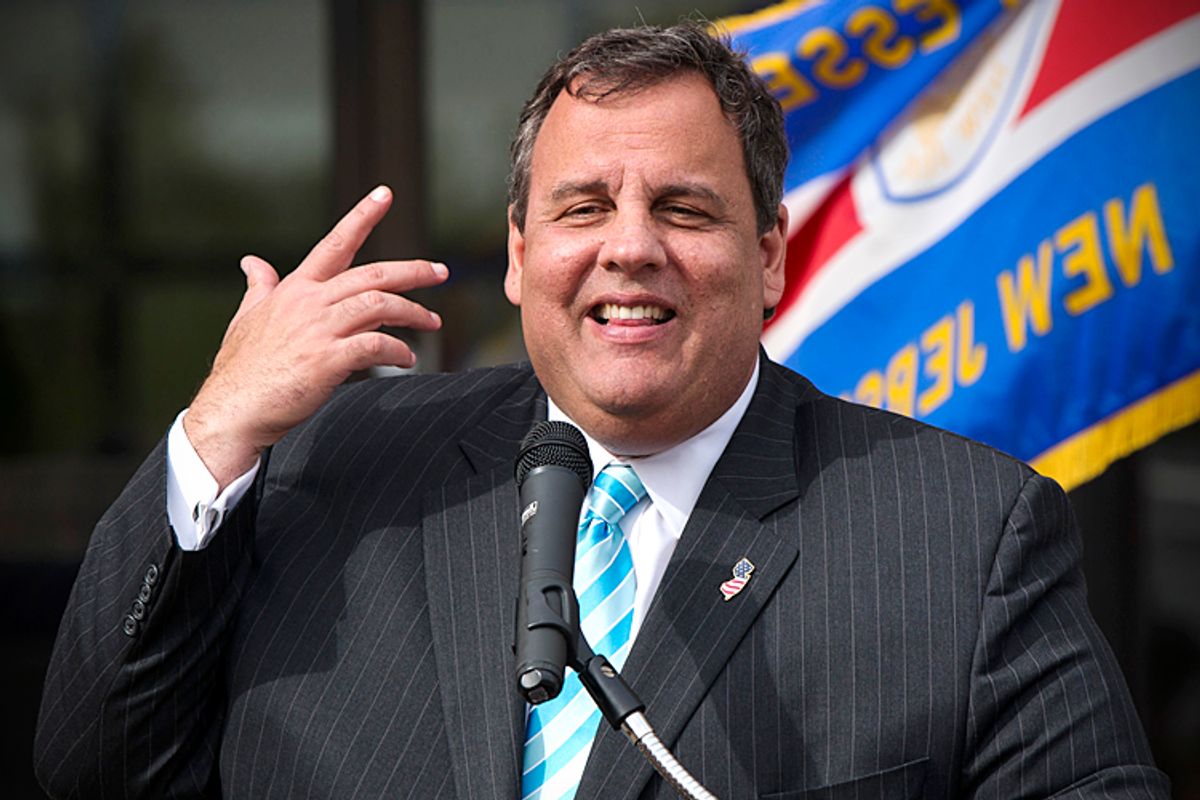On October 16th – a Wednesday, no less – New Jersey voters are being asked to go to the polls to select a new U.S Senator to replace Jeffrey Chiesa, Gov. Chris Christie’s stand-in for the long-time Democratic Senator Frank Lautenberg, who died earlier this year. Bizarrely, this oh-so-special election takes place just 20 days before these same voters will be asked to return to the polls for the regularly scheduled election for governor and state legislature.
The cost to New Jersey taxpayers? Some $12 million. The adverse impact on voter turnout for having two separate elections in 20 days? Significant. The partisan calculation behind the election date? Blatant.
It’s hard to know when we’ll hit bottom in shameless manipulation of our electoral laws by leaders of both major parties, but let’s hope it doesn’t get much lower than Gov. Christie’s “datemander.” When announcing his election schedule last spring, Christie justified the October 16th date with his professed belief that New Jersey voters needed as many days as possible with an elected Senator - then proceeded to appoint a Republican who for four months opposed most of the positions held by the man originally elected by those voters.
We all know the real reason for this “Christiecookery." Christie wanted to keep the special election separate from his own re-election. As expected, Democrats have nominated Newark mayor Cory Booker, who is heavily favored to become the second African American elected to the U.S. Senate in the 21st century. With odd-year elections typically having lower turnout than even-year elections, Christie didn’t want a new surge of voters to upset his re-election applecart – or adversely affect Republicans in state legislative elections.
For much of the media, such partisan manipulation was worth just a wink and a nod - even quiet admiration for the sheer gall of asking NewJersey to pay to boost Republican electoral fortunes. It’s hard to imagine the media applauding if a sports team sneakily adjusted the height of the opponents’ basket or scheduled a game earlier to avoid facing another team’s best player who was returning from injury, for instance, - and then charged fans extra for the cost of rescheduling.
Such manipulations run rampant in our elections. Democrats resorted to every trick in the book to keep independent Ralph Nader off the ballot in key states in the 2004 presidential race, even as Republican backers tried to help Nader repeat the “spoiler” role he played in 2000. Democratic House leader Nancy Pelosi strongly backed a redistricting reform ballot measure in Ohio in 2005 even while fighting a similar measure that year in her home state of California. Republicans in states like Florida, North Carolina, Texas, and Pennsylvania have passed laws that are clearly designed to hurt turnout among certain voters in the Democratic base. Most Republicans oppose congressional voting rights and statehood for the District of Columbia simply because the District would elect Democrats.
But please – enough already. When making presentations to delegations of international visitors, I regularly ask whether they see such blatantly partisan manipulation of electoral laws at home. They look bewildered. Manipulation of electoral laws is to be expected of Russia’s Vladimir Putin and tinpot dictators, not top-tier democratic nations.
The United States has every reason to be proud of the legacy of our democratic republic, from its founding in the 18th century to the expansion of suffrage to introducing popular elections to bodies like the U.S. Senate. But now we’re moving backward – and the core explanation for that reversal is the willingness of our pundit and political classes to tolerate elected leaders putting partisan calculation above commitment to upholding our right to vote and receive fair representation.
As a start, we should systematically remove opportunities for elected officials to manipulate outcomes. New Jersey’s troubles started with vague provisions involving U.S. Senate vacancies that give Christie far too much leeway. Electoral laws should be clear and always designed to respect the voter. Similarly, we should remove the power of elected officials to draw their own district lines and create criteria-driven redistricting commissions in order to prevent the practice of allowing politicians to pick their voters before their voters pick them.
Fixing gerrymandering points to a broader need. We need more voting laws that always put voters. in control. No matter who draws district lines, for example, someone is going to lose out as long as we keep winner-take-all rules where 51% of voters in a district win 100% of representation. But we can replace one-seat districts with multi-seat districts desgned for elections with fair representation systems that allow like-minded voters to help elect candidates in proportion to their level of support -- and make redistricting far less impactful than votes.
The same principle should be applied to voting access. Gaming voter registration can be eliminated by using modern know-how to ensure that that every eligible voter is registered exactly once, and no ineligible voter is registered. We should establish straightforward voter access laws that make it clear that any registered voter who wants to participate can do so. We should stop allowing partisans to administer elections and establish politically neutral bodies that can be held accountable to strong pro-voter standards.
Ultimately, we should have a national conversation about adding an explicit right to vote to the Constitution and tolerate such low voter turnout. We should stop giving politicians a pass when they clearly allow partisan calculation to govern their positions on voting laws. If enough elected officials make a public commitment to stop gaming the vote, political shenanigans like the New Jersey datemander will become unacceptable.



Shares